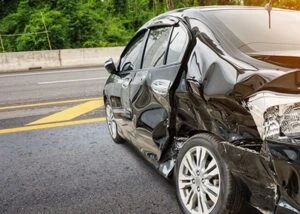Accidents can happen to anyone, and the aftermath often leads to tough choices about your vehicle. One of those choices is deciding what to do with a car that has been declared a total loss. Many car owners choose to repair it and apply for a rebuilt title after an accident. This process allows a once-salvaged vehicle to be legally driven again, but it also comes with important details every driver should understand before making that decision.
What Does a Rebuilt Title Mean?
A rebuilt title is issued to a vehicle that was once considered a total loss due to damage but has since been repaired and passed the state-approved inspection. In Florida, this process ensures that the car meets legal safety and roadworthiness standards before returning to the road. It’s a way for car owners to regain use of their vehicle, but it’s also a signal to future buyers that the car has a history of major repairs.
What Happens After an Accident?
When your car is severely damaged, your insurance company usually declares it a total loss if the repair costs exceed a certain percentage of its value. You can then sell it to a salvage yard or choose to buy it back, repair it, and apply for a rebuilt title.
If you take the second route, you’ll need to pass an inspection through a licensed private rebuilt inspection agency or go through the Florida DMV. Private agencies often make this process smoother and faster because they handle inspections on a daily basis and sometimes without appointments, and can guide you on what documents to bring, helping you avoid unnecessary delays.
What Inspectors Actually Do
It’s important to understand what inspection agencies can and cannot do. Inspectors are not certified mechanics. Their job is not to check every component of the vehicle for mechanical issues but to verify that the major parts that were replaced match the proper vehicle identification numbers (VINs) and meet state requirements. They ensure the car isn’t stolen and that it follows Florida’s rebuilt title laws.
They cannot, however, guarantee the vehicle’s long-term performance or safety beyond their inspection scope. Therefore, after passing inspection, it’s still a good idea to take your vehicle to a trusted mechanic for a complete safety and performance check.
Why Some Drivers Choose Rebuilt Titles
Many car owners decide to rebuild their vehicles because it’s often cheaper than buying a new one. If the damage was mostly cosmetic or repairable, restoring the car and getting a rebuilt title can be a smart financial move.
A rebuilt car can serve as a reliable daily vehicle, but buyers and owners should remain aware of the car’s history. The rebuilt brand will always appear in the vehicle’s record, which may lower its resale value compared to similar cars without a damage history. However, for those who plan to keep their vehicle long-term, the savings can outweigh this drawback.
Common Misunderstandings About the Process
A major point of confusion for many car owners is the difference between the DMV and private inspection agencies. The Florida DMV handles rebuilt inspections, but you’ll often need to make appointments and complete your own paperwork. This can involve long wait times and multiple visits.
Private rebuilt inspection services, on the other hand, offer personalized scheduling or no appointments are all, and step-by-step assistance. They explain what forms, receipts, and documents you need, ensuring your inspection goes smoothly. They have inspectors on site so once all the paperwork is in order, there’s no delay in passing the physical inspection of the vehicle. This can save you time and help prevent your application from being rejected due to missing paperwork.
What You’ll Need for the Inspection
Before your rebuilt inspection, you’ll need:
- The original salvage title
- Bill of sale (if the salvage title hasn’t been fully transferred in your name)
- Receipts for all the major parts replaced
- A valid state-issued photo ID
- Photos of the damaged vehicle in wrecked condition
Having these ready ensures your inspection can be completed without delays. Private agencies often remind customers to bring these items in advance so that the process is quick and stress-free.
Things to Keep in Mind
Once your car passes inspection and gets a rebuilt title, it can be legally driven again. Still, it’s wise to keep all documentation of repairs and inspections in your records. If you ever decide to sell the vehicle, having a clear history helps potential buyers trust the car’s condition.
Also, remember that a rebuilt title doesn’t automatically mean the car is unsafe. The key is ensuring it has been repaired correctly and inspected following Florida’s regulations.
Wrapping Up
A rebuilt title can be a practical and cost-effective option for car owners who want to get back on the road after an accident. By understanding what inspectors look for and what their role involves, you can approach the process confidently and avoid common mistakes.
If you’re considering restoring your vehicle, make sure your inspection is handled by trusted professionals who understand Florida’s procedures and legal requirements. For drivers seeking quality service and fast scheduling, they can turn to private agencies offering the best rebuilt inspections in Florida, helping them complete the process efficiently to get back on the road safely.
Visit Us: https://maps.app.goo.gl/gTcJbkfeFi3vdn579


